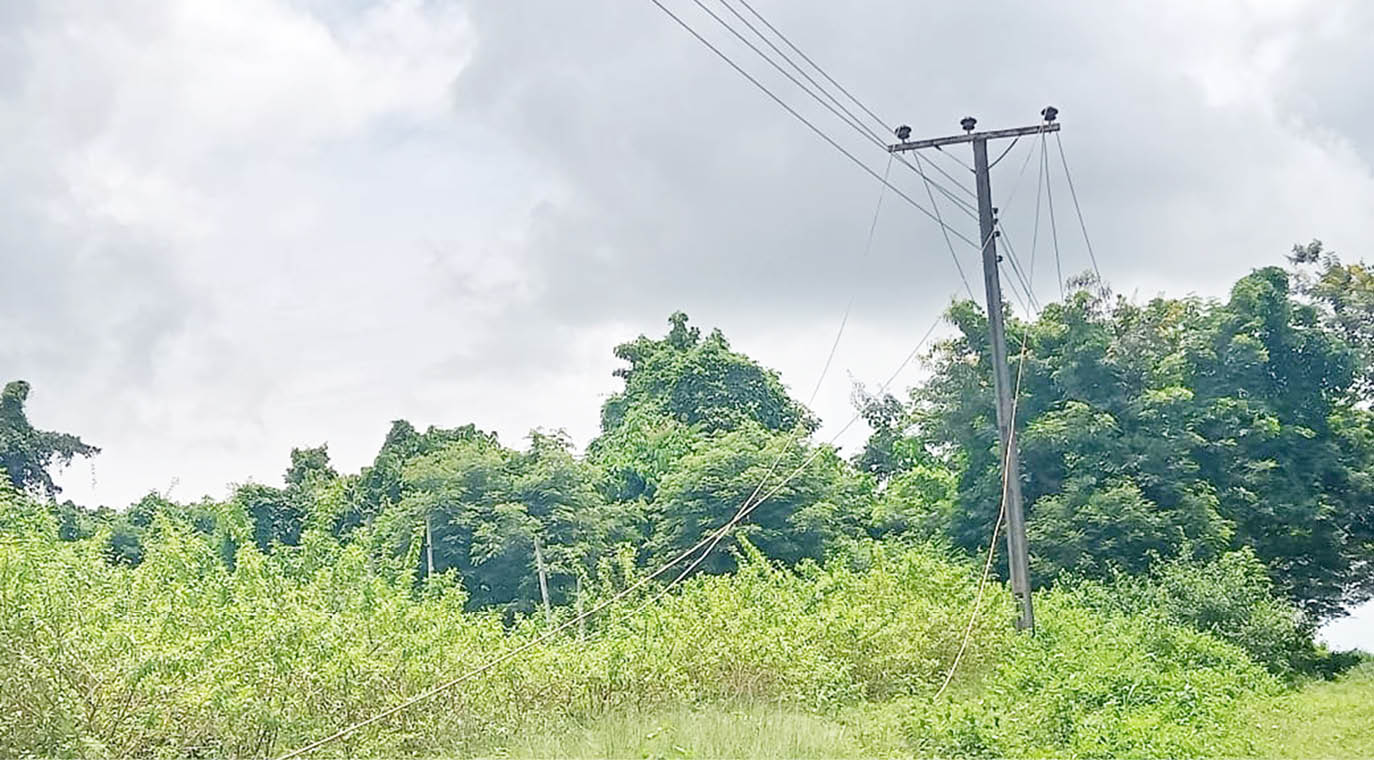Orile-Oko: Ogun community groans under 18 years of blackout
Orile-Oko, a community in Remo North Local Government Area of Ogun State, has been battling electricity blackout for 18 years. As a result of this, socio-economic activities have been brought to its kneel. The agrarian community is located few kilometers from the Lagos-Ibadan expressway. Founded in 1813, the community, comprising 33 villages, was once described […]

Orile-Oko: Ogun community groans under 18 years of blackout
Orile-Oko, a community in Remo North Local Government Area of Ogun State, has been battling electricity blackout for 18 years. As a result of this, socio-economic activities have been brought to its kneel.
The agrarian community is located few kilometers from the Lagos-Ibadan expressway.
Founded in 1813, the community, comprising 33 villages, was once described as the “food basket” of the state.
Despite its rich soil for agriculture, the community has also been plagued by poor road network and lack of access to potable water, in addition to the absence of electricity for 18 years.
The community first had a glimpse of electricity in 2003 when the then Governor Olusegun Osoba, at the tail end of his administration, under its rural electrification project, commissioned a transformer, supplying electricity to all villages under the community. Few months later, the power supply was disrupted, plunging the community into total blackout.

Residents of the community said this situation had dealt a huge blow on their economic activities. They blamed their woes on the state government.
Businesses in the community are suffering and means of livelihood is expensive as residents depend on power generating sets. In fact, children and some teenagers don’t even know what it means to have electricity.
Findings by our correspondent revealed that some teachers and corps members posted to Orile-Oko usually abandon their duty posts completely, while some visit once or twice a week.
None of the residents who spoke with Daily Trust on Sunday had an idea of what led to the disconnection of the power supply. They said all efforts to get it restored had not been successful.
Those who spoke with Daily Trust on Sunday said they spent at least N20,000 monthly to fuel their generators.
Also, there are no filling stations in Orile-Oko, so residents go to Isara to buy fuel. And it costs between N700 and N1,000 on transportation from Isara to Orile-Oko, the residents told our correspondent.
“Who will stay here? Someone who has enjoyed city life won’t come here and stay,” Ogundipe Clement, a resident of the community said while alluding to the alleged abandonment of the community by teachers and corps members.
He said, “If there is light and good road, people will stay. We urge the government to please come to our aid.”
The Baale of Ogunsina village, Osho Sunday told our correspondent that he spent N30,000 monthly to power his generating set.
“We spent up to N40, 000 in a month. Sometimes I buy 10 liters for N1,500 in a day. We just manage the fuel for three days.
“The cost of transportation from here to Isara local Government is N2,500,” Sunday said.
Mrs Abeke Olayinka, who is in her 70s, has lived in Orile-Oko for about 40 years, told our correspondent that apart from the blackout, the community has been battling lack of water for decades.
She said the only source of water in the community is a stream and accused the state government of marginalising them.
“There are many challenges in this community, including lack of water, quality health care, bad roads. As a farming community, we need good roads to transport our produce to the market.
“I am calling on the state government to please come and fix these challenges. This marginalisation must not continue like this. We need these amenities for the development of our community and the youth,” Olayinka said.
Baale Ogunshina told our correspondent that a former member of the House of Representatives, Oladipupo Adebutu, had donated a borehole to the community to ameliorate the suffering of residents.
The Lisa of Orile-Oko, High Chief Olakunle Olalekan, also said, “We are suffering. We are highly marginalised.
“Out of the six communities in Remo land, Orile Oko is the only one without electricity.”
Olalekan, who is also the Asiwaju of Orile-Imo, said, “Economically, financially and politically, we are affected. When we were enjoying electricity back then, artisans like welders relocated to the community, but immediately the light was off, they began to leave. As it is now, we only farm here. And you cannot even preserve your produce because there is no electricity. It is not ideal.
“We appeal to the governor of the state to come to our aid. His wife, Mrs Bamidele Abiodun, has been kind to us. During the COVID-19 lockdown, she gave us palliatives.
“I also want to tell the people of Orile-Oko to remain calm and live peacefully, as well as continue to support the present government.”
Daily Trust Saturday recalls that in June this year, Governor Dapo Abiodun inspected the Orile-Oko road, which leads from Iyankan to about 105 communities. He promised that “the construction of the road will be completed between 9 and 12 months.”
The governor said 60 projects had so far been executed in Remo North Local Government Area, while the contract for the construction of the Sagamu-Iperu-Ode road had been awarded. He added that his administration would complete the model school at Isara for the benefit of residents.
The special adviser to the governor on public communication, Remmy Hazzan, admitted that Orile-Oko and some other communities had not been fairly treated by past administrations. He, however, said the government would continue to prioritise infrastructural development in the community under its rural development programme.
